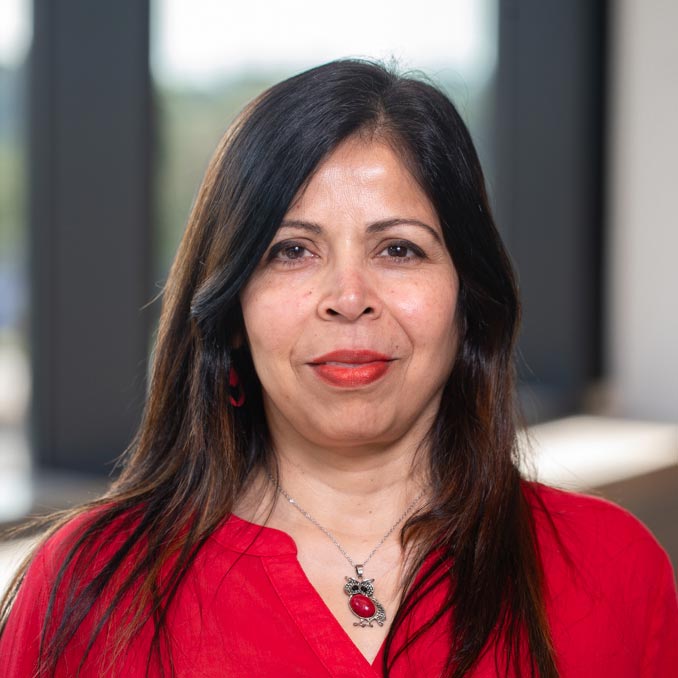
Ambreena Siddiq, PhD
- Professor
- Chemistry
- Chemistry, Mathematics and Physics
How to Reach me
About Me
-
Dr. Ambreena Siddiq's expertise in teaching, research, and leadership makes her a transformative figure in academia. Committed to excellence and inclusivity, she inspires the next generation of scientists and leaders in biochemistry and beyond.
-
Distinguished Educator, Researcher, and Leader
-
Ph.D. in Protein Chemistry, University of Karachi, Pakistan
-
Postdoctoral studies in Neurosciences, Cornell University and Harvard University
-
Associate Professor of Biochemistry, PennWest University-Clarion
-
Fulbright Specialist designated by the US Department of State
-
Research Contributions and Leadership
-
Numerous peer-reviewed Publications on therapeutic interventions for stroke patients
-
Holds patents for synthetic drugs targeting nervous system disorders and innovative delivery methods to enhance hypoxia-inducible factor activity in neurons
-
Holds leadership roles such as Co-Chair of accreditation and strategic planning committees
-
Actively shapes policies for student success and faculty development
-
Member of the Institutional Review Board (IRB) and Reviewer for Faculty Professional Development Grants
-
Certified board member of the Title IX Hearing Board
-
Advocacy for Diversity and Inclusion
-
Member of the President’s Commissions on Women, Disability, and Diversity, Equity, and Inclusion
-
Collaborates with TRiO programs to recruit and support underrepresented minority students in STEM
-
Recognized for culturally responsive teaching strategies and facilitates difficult dialogues for an inclusive academic environment